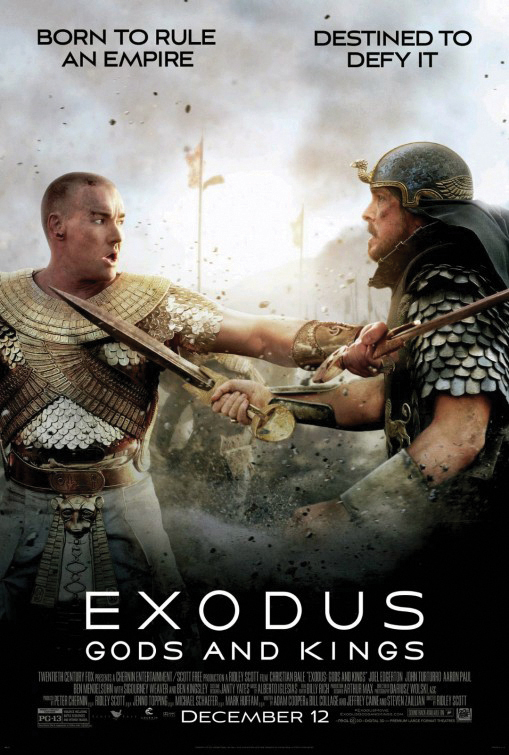Directed by Ridley Scott (20th Century Fox, 2014)
Exodus: Gods and Kings tells what should be a familiar story: A man raised as Pharaoh’s son discovers his dangerous heritage, gradually identifies with his oppressed people, and allies with their God to lead them to freedom.
Director Ridley Scott leaves Moses’ revelations open to interpretation. Before Moses’ vision of God and the burning bush, he’s hit on the head by a rock during a landslide. Henceforth, only Moses (Christian Bale) can see God. The viewer must decide whether the prophet is receiving divine revelation or merely hallucinating.
Simple psychology cannot explain the plagues that devastate the Egyptians with increasing severity. As the plagues go from bad (but scientifically explainable) to worse (and clearly divinely ordered), the viewer begins to feel bad for Pharaoh and the rest of the Egyptians. The scene in which Ramses seals away the corpse of his infant child is truly chilling. We are not surprised when he sends his chariots after the Israelites. We may even cheer him forward.
We see none of Moses’ stumbling over his words in this film. He is as skilled with his words as he is with his sword, which completely supplants the role of the famous staff of scripture. His hair-raising speech to the Israelites before crossing the Red Sea could have come straight from Gladiator or Braveheart.
The story of Moses’ discovery of his identity is bound up not only with religion but also race. While lavish makeup does a good job of making the Caucasian actors appear Egyptian or Hebrew, the film’s clear lack of diversity can only betray the original story’s message of a search for both family and identity.
We shouldn’t expect biblically inspired films to cling exclusively to the original text. This would lead to dry, pious, and short viewing experiences. Scott gives us a fresh—and very bloody—take and leaves substantial questions to gnaw on. It’s a shame the meat wasn’t left with more color.
This review appeared in the February 2015 issue of U.S. Catholic (Vol. 80, No. 2, page 42).
Image: Photo courtesy of 20th Century Fox
















Add comment